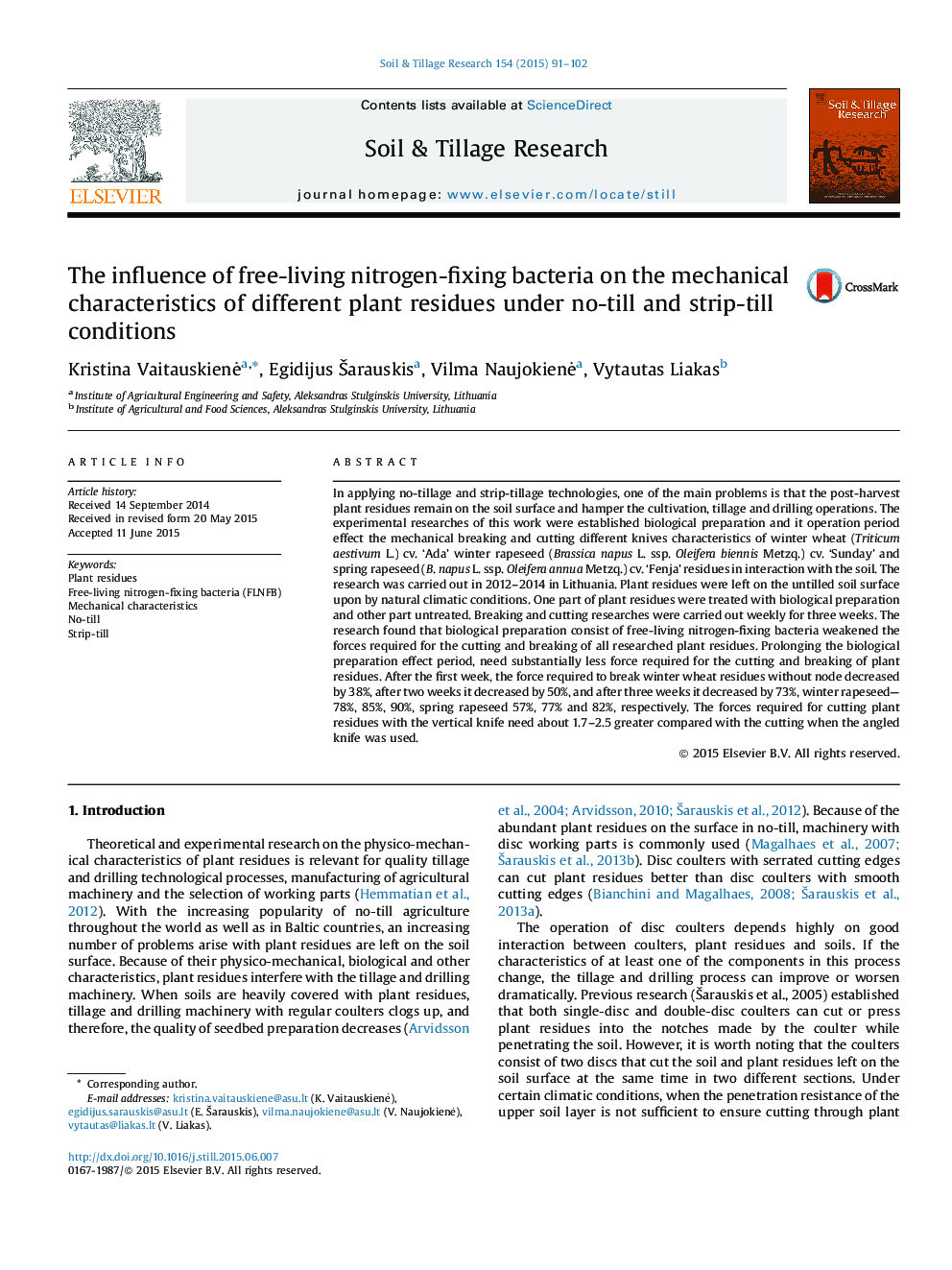| کد مقاله | کد نشریه | سال انتشار | مقاله انگلیسی | نسخه تمام متن |
|---|---|---|---|---|
| 305448 | 513030 | 2015 | 12 صفحه PDF | دانلود رایگان |
• No-till and strip-till machine working parts can break and/or cut plant residues.
• The breaking force for winter wheat residues with nodes differs from that for residues with no nodes differs.
• FLNFB weakens the mechanical characteristics of plant residues over time.
• Knives positioned at an angle cut plant residues better than knives positioned vertically.
In applying no-tillage and strip-tillage technologies, one of the main problems is that the post-harvest plant residues remain on the soil surface and hamper the cultivation, tillage and drilling operations. The experimental researches of this work were established biological preparation and it operation period effect the mechanical breaking and cutting different knives characteristics of winter wheat (Triticum aestivum L.) cv. ‘Ada’ winter rapeseed (Brassica napus L. ssp. Oleifera biennis Metzq.) cv. ‘Sunday’ and spring rapeseed (B. napus L. ssp. Oleifera annua Metzq.) cv. ‘Fenja’ residues in interaction with the soil. The research was carried out in 2012–2014 in Lithuania. Plant residues were left on the untilled soil surface upon by natural climatic conditions. One part of plant residues were treated with biological preparation and other part untreated. Breaking and cutting researches were carried out weekly for three weeks. The research found that biological preparation consist of free-living nitrogen-fixing bacteria weakened the forces required for the cutting and breaking of all researched plant residues. Prolonging the biological preparation effect period, need substantially less force required for the cutting and breaking of plant residues. After the first week, the force required to break winter wheat residues without node decreased by 38%, after two weeks it decreased by 50%, and after three weeks it decreased by 73%, winter rapeseed—78%, 85%, 90%, spring rapeseed 57%, 77% and 82%, respectively. The forces required for cutting plant residues with the vertical knife need about 1.7–2.5 greater compared with the cutting when the angled knife was used.
Figure optionsDownload as PowerPoint slide
Journal: Soil and Tillage Research - Volume 154, December 2015, Pages 91–102
